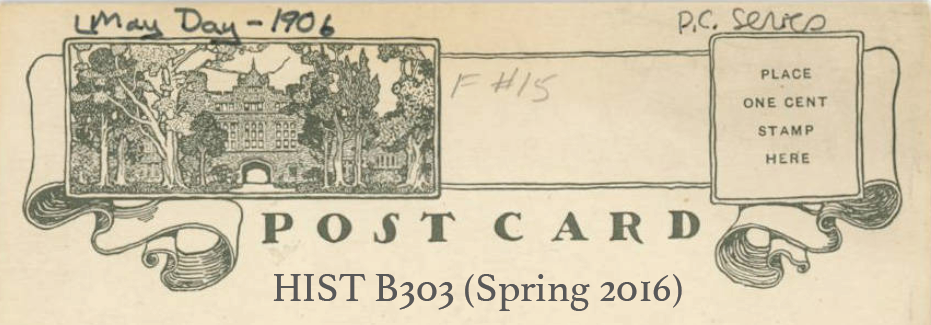I’ve been thinking a lot about the way Bryn Mawr presents itself lately, as I’ve watched and participated in the conversations going on surrounding departmental funding, Welcome-the-First-Years Week, and the future of Bryn Mawr. Back home, where almost no one in my community has heard of Bryn Mawr (one person once asked me if that meant I attended school at this train station: http://www.transitchicago.com/travel_information/station.aspx?StopId=28), I used to often summarize the College by billing it as a pioneering women’s institution that offered women opportunities at a time when few other places would. This is the standard narrative the College gives out (well, one of them) and it conveniently ignores the fact that the women Bryn Mawr was created to serve were white, cis, able, wealthy, and generally privileged in every way except their gender. I led with it for two reasons: one, because no matter what my personal feelings are about this school, leading with a list of Bryn Mawr’s problems felt like the wrong way to introduce the College; two, because I am in most ways the sort of woman Bryn Mawr would have serviced in 1885, I have the privilege of attending an institution that was (mostly) made for people like me, and that gave me the option not to mention the issues Bryn Mawr struggles with and to avoid any social awkwardness that might follow.
I have stopped leading with this, however, in the last year. What first made me reconsider it was actually when I heard it used as a reason that Bryn Mawr should admit trans women: that because we had been founded to help a marginalized group, we should carry on that practice. While I am 100% behind the admittance of trans women to this campus– and trans men as well, despite the College’s decision not to at this time–I found that particular argument troubling, because I didn’t feel it was really true. Can we really say that the women who first graduated from this college were marginalized? Certainly they were at a disadvantage when compared to their male peers, but they were elite and privileged in every other way. To say that the College was in fact founded to aid a “marginalized” group and has carried on in that tradition is to ignore the fact that for decades Bryn Mawr actively avoided admitting African American women, Jews, and more recently trans women. Those are not the actions of a pioneering institution.
All campuses are political. Academia is inherently political. We cannot say that we have stood apart from the greater movements of history, and I do not think condemning this institution for lacking the trans-historical vision of hindsight is constructive. But to say we have always been on the right side of history, always ahead of the curve, because we have serviced one– and only one– disadvantaged group is, in my opinion, a lie. Better to acknowledge that we started with good intentions for some, and we intend to– that we will— become a pioneering institution, one that leads the fight for change and promotes not only gender equality, but racial, religious, and many other kinds of equality besides. Not only is that a more honest portrayal of our history and our vision for the future, but I think in the end it’s a more honorable approach all around.
So, these days, when someone asks me about my school, I try to do what I’ve always intended to do: tell the truth. It’s a work in progress, to be sure, but at least it’s a start.
